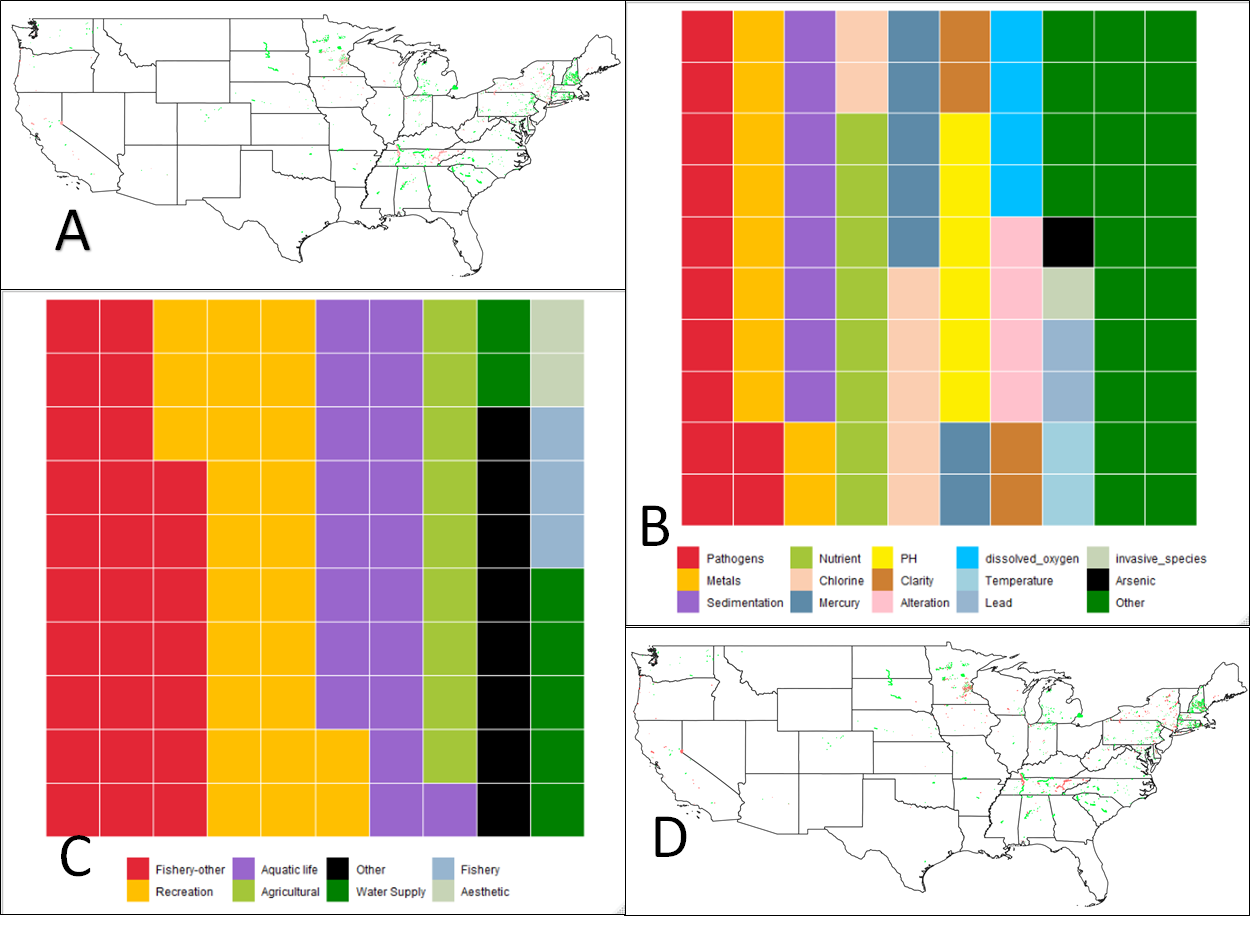‘Nationwide lake Impairment and Property Value
Published:
Abstract

Under the U.S. Clean Water Act, states are required to assess, monitor, and list a waterbody as impaired when it fails to support its designated use(s). We examine the effect of lake impairment status on property values throughout the continental United States using the hedonic pricing model and nationwide geospatial data of sales transactions and property characteristics linked to the water impairment database. We contribute to the body of literature by using explicit expert-developed waterbody impairment status instead of non-explicit water quality measures, thus reducing bias generated from information asymmetry between house buyers and sellers. We also contribute by extending our estimates to the national level where previous studies are at the regional level. We estimate that information disclosed via impairment status induces a 2.17% reduction in sales prices within 150m of a lake. On average, the value of a property within 150m of an impaired lake decreases by \$5,706. Our capitalization estimates imply that total property value depreciation of \$2.6-8.2 billion can be attributed to properties within 150m of all lakes larger than 4ha. Although hedonic models provide lower bound estimates, our nationally representative robust capitalization effect demonstrates the necessity of protecting waterbodies from being impaired.
Coauthors: Christoph Nolte, Stephen Polasky
